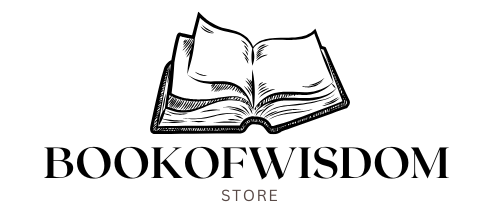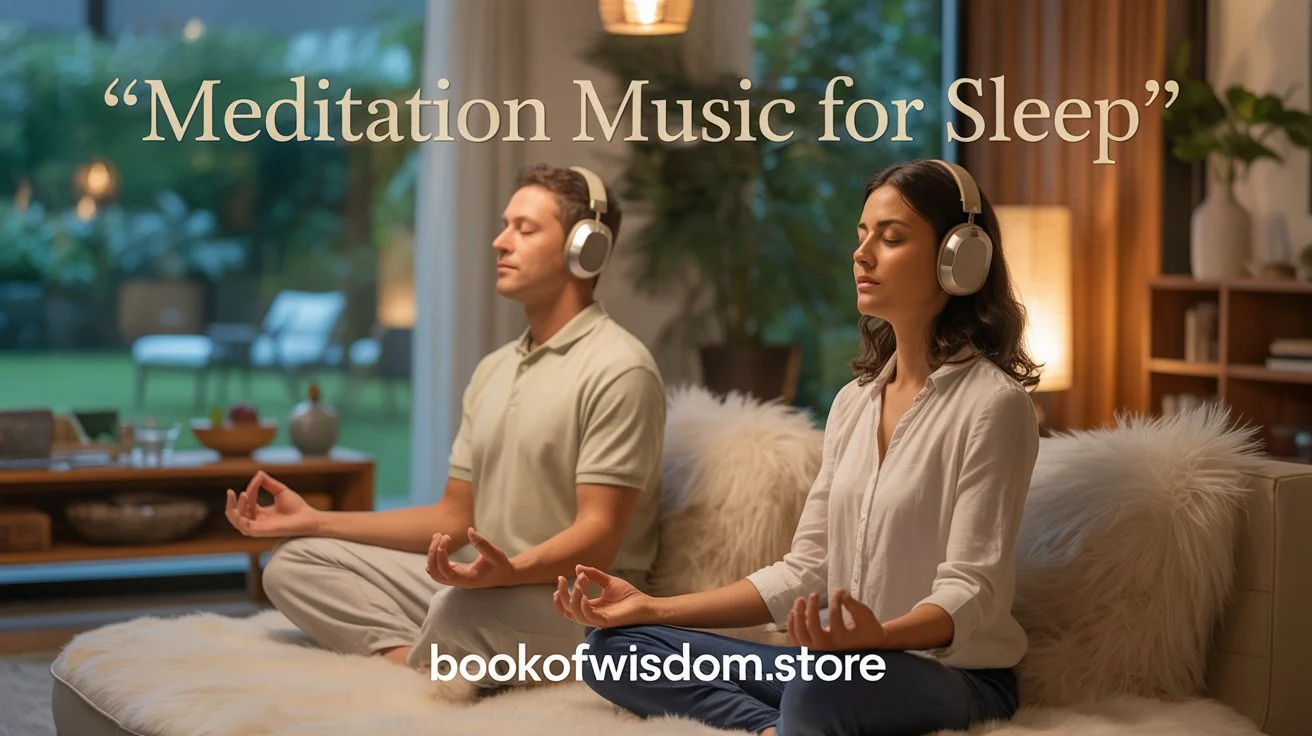3 Best Meditation Music for Sleep, Relaxing Sleep Music, Deep Sleep and Dreams Beautiful Piano Music
The Ultimate Guide to Meditation Music for Deep Sleep and Beautiful Dreams
Have you ever found yourself tossing and turning at night, desperately seeking the embrace of peaceful slumber? You’re not alone. Millions of people worldwide struggle with sleep issues, and many have discovered a surprisingly simple solution: meditation music for Sleep.Let me take you on a journey through the enchanting world of sleep music, where beautiful piano melodies meet the science of deep rest.
Table of Contents
Why Sleep Music Matters in Today’s Fast-Paced World
We live in an age where our minds are constantly bombarded with notifications, deadlines, and endless streams of information. By the time we hit the pillow, our brains are still racing at a hundred miles per hour. That’s where meditation music for sleep comes in—it’s like a gentle hand guiding your overactive mind toward tranquility.
Think about it: when was the last time you truly disconnected from the chaos of daily life? Sleep music creates a sonic sanctuary, a buffer zone between your hectic day and the restorative sleep your body desperately needs. It’s not just background noise; it’s a therapeutic tool that’s been helping people find rest for centuries.
Understanding Meditation Music for Sleep
What Makes Music “Sleep-Friendly”?
Not all music is created equal when it comes to sleep. You wouldn’t blast heavy metal and expect to drift off peacefully, right? Sleep-friendly music has specific characteristics that make it effective. We’re talking about slow tempos, typically between 60-80 beats per minute (that’s roughly the speed of your resting heart rate), minimal variations in volume, and soothing harmonic progressions.
The best meditation music for sleep avoids sudden changes or dramatic crescendos. Instead, it flows like a gentle river, carrying you downstream into the land of dreams. Piano music particularly excels in this role because of its naturally calming timbre and the way individual notes can cascade like water droplets.
The Science Behind Sleep Music
Here’s where it gets fascinating. When you listen to relaxing music before bed, your brain starts producing more delta waves—those slow brain waves associated with deep, restorative sleep. Research shows that music can lower cortisol levels (that’s your stress hormone), reduce heart rate, and slow down your breathing.
Your brain essentially synchronizes with the rhythm of the music, a phenomenon called “entrainment.” It’s like how pendulums eventually swing together when placed side by side. The music literally guides your brainwaves from the alert beta state down through alpha (relaxed) and theta (drowsy) states, eventually settling into delta (deep sleep).
The Power of Relaxing Sleep Music
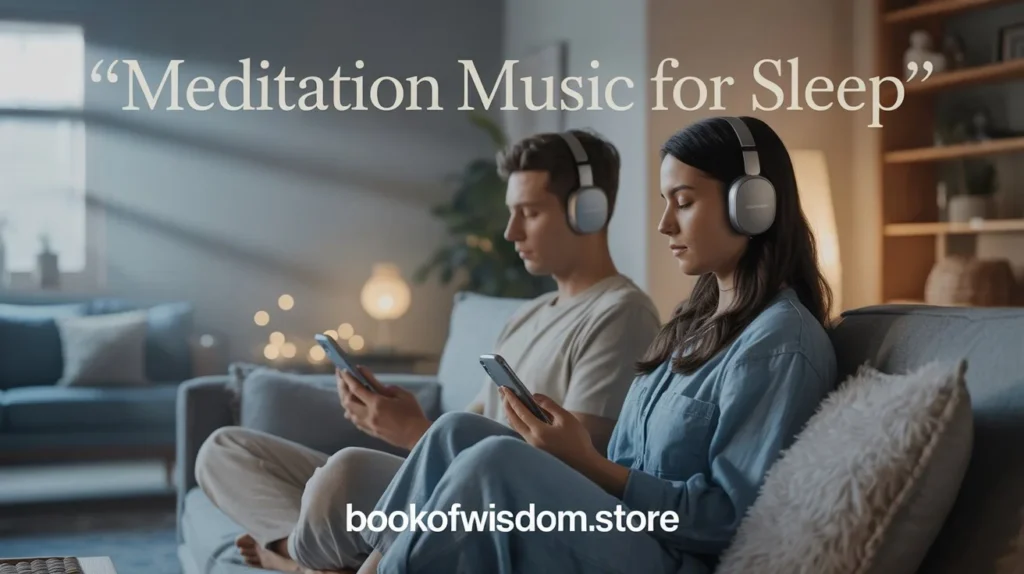
How Relaxing Music Affects Your Brain Waves
Let’s dive deeper into what’s happening inside your head. When you’re stressed or anxious, your brain produces predominantly beta waves—fast, choppy patterns associated with active thinking. Relaxing sleep music acts as a neurological dimmer switch, gradually slowing down these patterns.
As the music plays, your nervous system shifts from sympathetic (fight-or-flight) to parasympathetic (rest-and-digest) mode. Your muscles release tension you didn’t even know you were holding. Your jaw unclenches. Your shoulders drop. It’s like giving your entire nervous system permission to stand down.
Types of Relaxing Sleep Music
There’s a whole universe of sleep music out there. You’ve got classical compositions specifically designed for sleep, ambient electronic soundscapes, nature sounds blended with gentle instrumentation, and of course, beautiful piano music. Some people swear by binaural beats, while others prefer the simplicity of a solo piano playing Chopin’s Nocturnes.
The beauty is in the variety. What works for your neighbor might not work for you, and that’s perfectly fine. Maybe you need the structured elegance of classical piano, or perhaps you respond better to the formless drift of ambient music. Experimentation is key.
Deep Sleep and Dreams: The Connection with Piano Music
Why Piano Music Works Wonders for Sleep
There’s something almost magical about piano music when it comes to inducing sleep. The piano’s tonal quality—neither too bright nor too dull—sits in a sweet spot that our brains find inherently soothing. Unlike electronic sounds, acoustic piano carries natural overtones and subtle imperfections that make it feel organic and alive.
Piano music for sleep typically features simple, repetitive patterns that don’t demand your attention but provide just enough structure to occupy your wandering mind. It’s like counting sheep, but infinitely more pleasant. The sustain and decay of each note create a natural rhythm that mirrors the breathing patterns associated with relaxation.
The Emotional Impact of Beautiful Piano Melodies
Here’s something beautiful: the right piano melody can evoke emotions without overwhelming you. It’s a delicate balance. The music needs to be emotionally resonant enough to distract you from anxious thoughts, but not so stirring that it keeps you alert and engaged.
Beautiful piano music for deep sleep often draws from romantic and impressionistic traditions—think Debussy’s “Clair de Lune” or Satie’s “Gymnopédies.” These pieces wash over you like moonlight, creating an emotional landscape that’s peaceful yet profound. They give your mind something more pleasant to focus on than tomorrow’s to-do list.
Benefits of Listening to Sleep Meditation Music
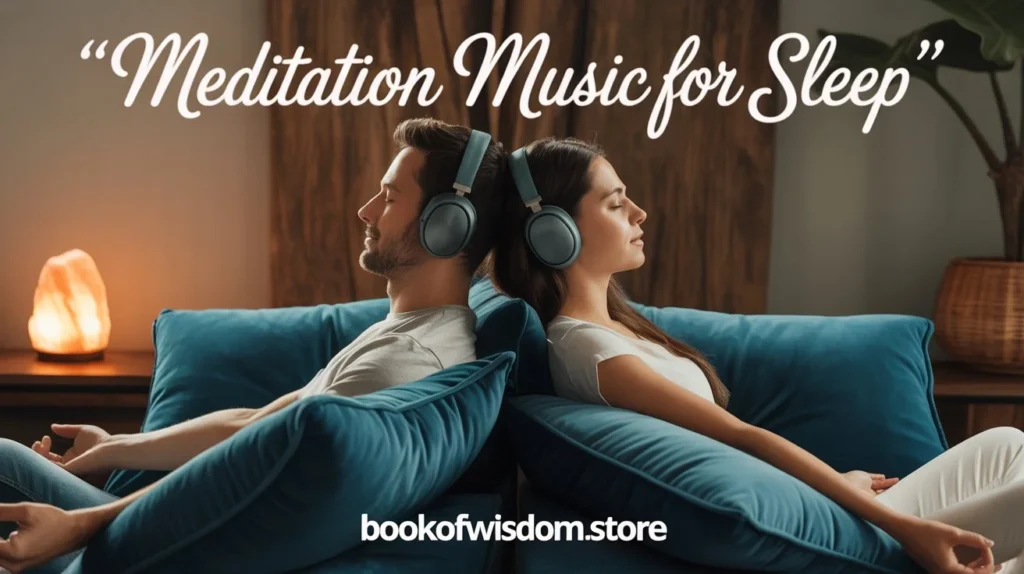
Physical Health Benefits
The benefits extend far beyond just falling asleep faster. Regular use of sleep music can lead to improved immune function, better cardiovascular health, and reduced chronic pain. When you sleep better, your body has more time and energy to repair tissues, consolidate memories, and regulate hormones.
People who consistently use meditation music for sleep report waking up feeling more refreshed and experiencing fewer middle-of-the-night awakenings. It’s like giving your body’s natural healing systems the optimal environment to do their work.
Mental and Emotional Wellness
Reducing Anxiety and Stress
If you’ve ever laid awake replaying embarrassing moments from ten years ago, you know how cruel an anxious mind can be. Sleep music interrupts this cycle by giving your brain something else to process. The gentle, predictable patterns provide a focal point that crowds out intrusive thoughts.
It’s not about suppressing anxiety—it’s about creating space between you and your worries. The music becomes a buffer, a soft cushion between your conscious mind and the stressors that would otherwise keep you alert.
Enhancing Sleep Quality
Quality matters more than quantity when it comes to sleep. You could spend ten hours in bed but wake up exhausted if you never reached deep sleep stages. Relaxing sleep music helps you spend more time in those restorative deep sleep phases, particularly during the first few hours of the night when they’re most abundant.
Dreams become more vivid and meaningful when you’re getting proper REM sleep, and many people report that beautiful piano music enhances their dream experiences. There’s something about drifting off to melodic sounds that seems to color the subconscious landscape.
How to Choose the Right Sleep Music for You
Tempo and Rhythm Considerations
Remember that magic number I mentioned? Sixty to eighty beats per minute is your sweet spot. This matches your resting heart rate and naturally encourages your body to slow down. Anything faster tends to keep you alert; anything much slower might feel unnaturally sluggish.
Pay attention to rhythmic consistency too. Music with a steady, predictable rhythm works better than pieces with complex time signatures or frequent tempo changes. You want your mind to settle into the groove, not work to follow along.
Instrumental vs. Nature Sounds
Some people find pure instrumental music most effective, while others prefer nature sounds like rain, ocean waves, or forest ambience mixed with gentle music. There’s no wrong answer here—it’s about personal preference and what signals “sleep time” to your brain.
Piano music often works beautifully on its own, but can be enhanced with subtle nature sounds. Imagine gentle rain pattering in the background while a simple piano melody plays—it’s like creating your own personal sleep sanctuary.
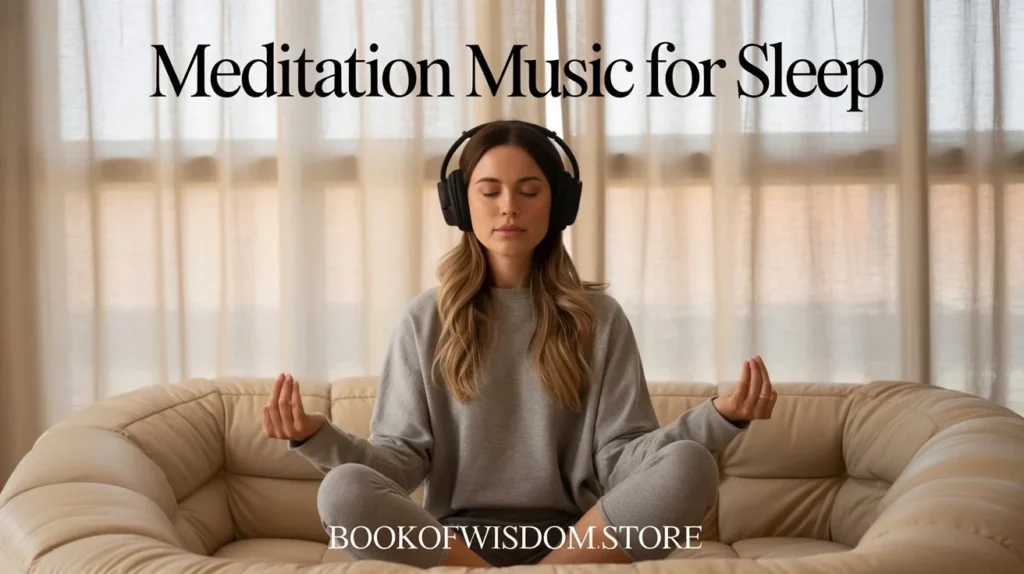
Creating Your Perfect Sleep Environment
Setting Up Your Bedroom for Better Sleep
Music is just one piece of the sleep puzzle. Your bedroom should be cool (around 65-68°F is ideal), dark, and quiet apart from your chosen sleep music. Think of your bedroom as a cave—a cool, dark retreat from the stimulation of the outside world.
Consider blackout curtains, comfortable bedding, and removing electronic devices that emit light. When you combine these environmental factors with beautiful sleep music, you’re creating optimal conditions for rest.
The Role of Volume and Timing
This is crucial: your sleep music should be barely audible. You want it present enough to notice but quiet enough that it fades into the background. If you’re straining to hear it or if it’s loud enough to prevent conversation, adjust accordingly.
Many people use timers to have the music fade out after 30-60 minutes, once they’re already asleep. Others prefer to let it play all night at very low volume. Experiment to find what works for you.
Best Practices for Using Sleep Music
When to Start Playing Your Sleep Music
Don’t wait until your head hits the pillow. Start your sleep music during your wind-down routine, perhaps 30-45 minutes before bed. Let it accompany you as you dim the lights, change into pajamas, and complete your evening rituals.
This creates a Pavlovian response over time—your brain learns that this music signals sleep is coming, and it starts preparing accordingly. It’s like training a puppy, except you’re training your own nervous system.
How Long Should You Listen?
There’s no universal answer, but most sleep experts suggest anywhere from 30 minutes to all night long. Some people only need music to fall asleep and prefer silence once they’re out. Others sleep more soundly with continuous gentle music throughout the night.
If you wake during the night, having music still playing can help you drift back to sleep more easily. It maintains that cocoon of calm around your sleeping mind.
Common Mistakes to Avoid with Sleep Music
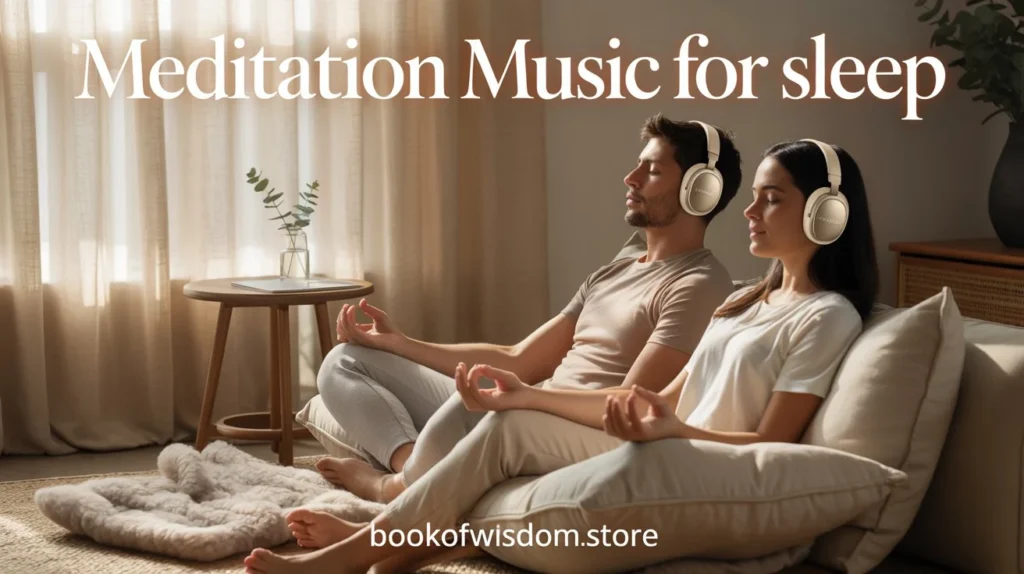
Here’s what not to do: don’t use music you find emotionally stimulating or intellectually engaging. That favorite song that gives you chills? Probably not ideal for sleep. Don’t play music too loudly—this can actually disrupt sleep quality. And don’t switch up your music constantly; consistency helps your brain form those helpful associations.
Also, avoid music with lyrics in a language you understand. Your language-processing centers will automatically engage, keeping you more alert. Instrumental music, particularly piano pieces, sidesteps this issue entirely.
Combining Sleep Music with Other Relaxation Techniques
Breathing Exercises and Music
Here’s a power combo: sync your breathing to the rhythm of your sleep music. Breathe in for four counts, hold for four, exhale for four, hold for four. Many piano pieces naturally fall into rhythms that support this practice.
This combination engages both your auditory system and your respiratory system in the relaxation process, creating a multi-layered approach to sleep preparation.
Progressive Muscle Relaxation
As your sleep music plays, systematically tense and release muscle groups throughout your body, starting with your toes and working upward. The music provides a soothing backdrop and helps you maintain focus on the exercise rather than getting distracted by thoughts.
By the time you reach your head and neck, you should feel thoroughly relaxed, with the music continuing to guide you toward sleep.
The Future of Sleep Music Technology
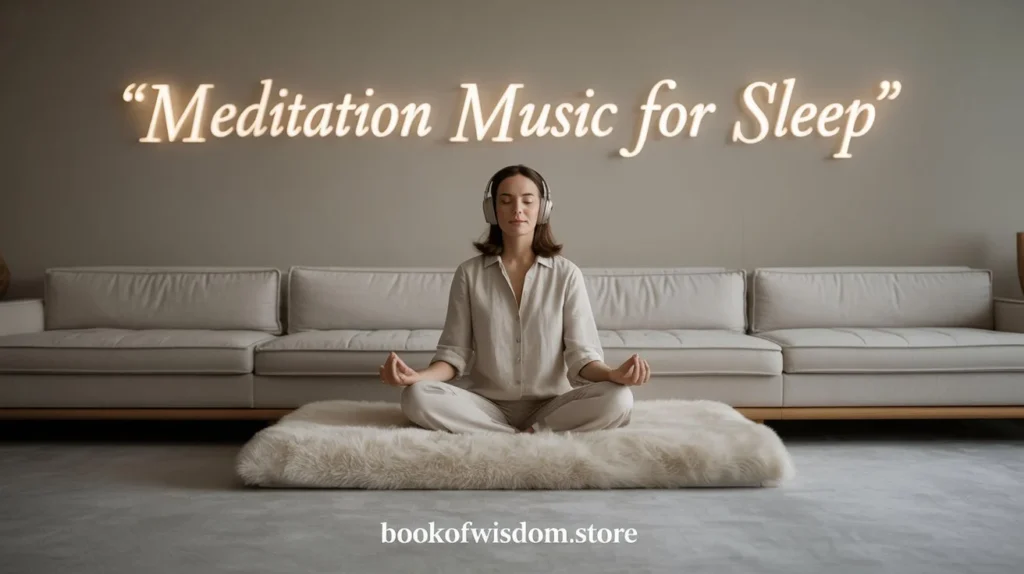
We’re entering an exciting era where artificial intelligence can generate personalized sleep music based on your specific brainwave patterns and sleep needs. Imagine music that adapts in real-time to your sleep stages, deepening when you’re in light sleep and subtly shifting when you enter REM.
Spatial audio technology is also creating more immersive soundscapes, though whether this improves sleep quality remains to be thoroughly studied. The fundamentals remain the same, though: slow, gentle, predictable music works.
Conclusion
Finding peace in our noisy world isn’t always easy, but meditation music for sleep offers a simple, accessible path to better rest. Whether you choose relaxing sleep music, deep sleep piano compositions, or beautiful melodic pieces that guide you into dreams, you’re tapping into an ancient human relationship with sound and rest.
The journey to better sleep doesn’t have to be complicated. Start tonight. Dim the lights, put on some gentle piano music, and let yourself be carried away on waves of sound into the deep, restorative sleep you deserve. Your body and mind will thank you in the morning.
Remember, this isn’t about perfection—it’s about creating conditions that support your natural ability to rest. Some nights will be better than others, and that’s okay. The key is consistency and finding what resonates with your unique neurological makeup. Sweet dreams.
FAQs Of Meditation Music for Sleep
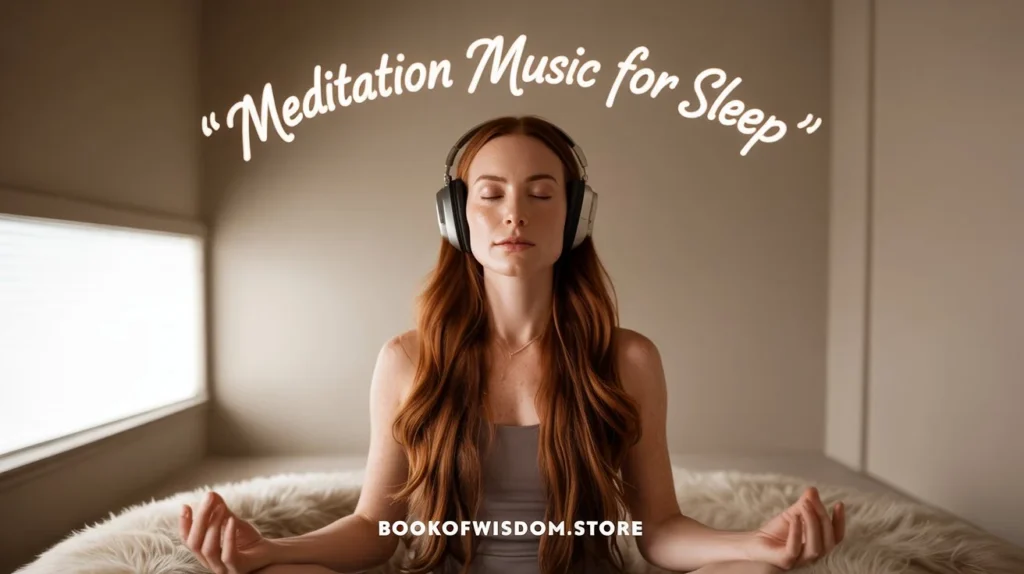
How long does it take for sleep music to start working?
Most people notice effects within the first few nights, but the full benefits often emerge after 1-2 weeks of consistent use. Your brain needs time to form associations between the music and sleep, so patience is key. Some lucky individuals fall asleep faster from night one, while others need a bit more time to adapt.
Can sleep music work for people with insomnia?
Yes, many insomnia sufferers find sleep music helpful, though it works best as part of a comprehensive sleep hygiene approach. If you have chronic insomnia, combine sleep music with regular sleep schedules, bedroom optimization, and possibly professional guidance. Music alone isn’t a cure-all, but it’s a valuable tool in your sleep toolkit.
Is it better to use headphones or speakers for sleep music?
Speakers are generally preferable for sleep music because they allow more natural sound dispersal and don’t create physical discomfort during the night. However, if you share a bedroom with someone who prefers silence, comfortable sleep headphones designed specifically for bedtime use can be a good compromise. Avoid regular earbuds as they can be uncomfortable and potentially unsafe.
Will I become dependent on sleep music?
While you might develop a preference for sleeping with music, this isn’t the same as harmful dependency. Your brain creates associations that make sleep easier, which is actually beneficial. That said, it’s wise to occasionally practice sleeping without music so you can rest well even when circumstances don’t allow for your usual routine.
What if I wake up during the night—should the music still be playing?
This is personal preference. Some people benefit from having music play throughout the night at very low volume, as it helps them transition back to sleep during natural wake periods. Others prefer using a timer to turn off the music after they’ve fallen asleep. Experiment with both approaches to discover what works best for your sleep architecture.
